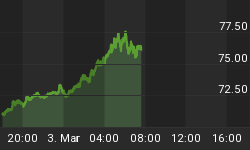It was only last August that the Fed's principal concern was preventing higher inflation. But, after 300 basis points of reductions in its federal funds rate target, a 75 basis point reduction in its discount rate "penalty," the creation of various alphabet soup new liquidity "facilities" and the hastily-arranged assumption of Bear Stearns by J.P. Morgan, Fed Chairman Bernanke told the Joint Economic Committee of Congress that it "now appears likely that real gross domestic product (GDP) will not grow much, if at all, over the first half of 2008 and could even contract slightly." Sounds a lot like a recession to me, but I will leave the formal call to the hindsighters at the NBER. In the spring, hope is eternal. So, in his next breath, Chairman Bernanke went on to say that the Fed expects "economic activity to strengthen in the second half of the year, in part as the result of stimulative monetary and fiscal policies; and growth is expected to proceed at or a little above its sustainable pace in 2009." No disrespect intended, sir, but the Fed's GDP forecasts have about as much credibility as ADP/Macroeconomic Advisers nonfarm payroll forecasts. The bottom line: Another funds rate cut at the end of this month, probably 25 basis points.
Mark It as You Choose, but Is Enough Cash Coming In?
The world abounds with seemingly costless solutions to our current economic/financial market problems. One of these solutions is to allow financial institutions to mark their assets at historical cost rather than to current market value. You can value your assets at any price you want, but the acid test is whether these assets are generating enough cold-cash income to keep current on interest and dividend payments. Chances are that if the market value of these assets is less than the historical cost, you will flunk the acid test.
Worst Quarter for Motor Vehicle Sales since Katrina
Total light-weight motor vehicle sales slowed to an annualized pace of 15.1 million units in March - down 1.7% from February and the slowest sales pace since the 14.8 million units in October 2005, in the aftermath of Hurricane Katrina. As the chart below shows, for the first quarter as a whole, annualized sales contracted by 20.0%. With the exception of the Katrina-depressed fourth quarter of 2005, this is the largest quarterly contraction in sales since the fourth quarter of 2002. Remember when all of the talking heads were saying that what happens in housing stays in housing?

China's Misery Index
The Chinese Shanghai stock market index fell 34% (not annualized) in the first quarter vs. the previous quarter (see chart below). Couple this with the "official" consumer inflation rate of 8.7% and you have the makings of some potentially surly Olympic hosts if things don't improve by August. You also have the makings of much slower Chinese GDP growth. So, like the housing "containment" hypothesis, the "decoupling" hypothesis is another beautiful theory likely to be spoiled by some ugly facts.

















